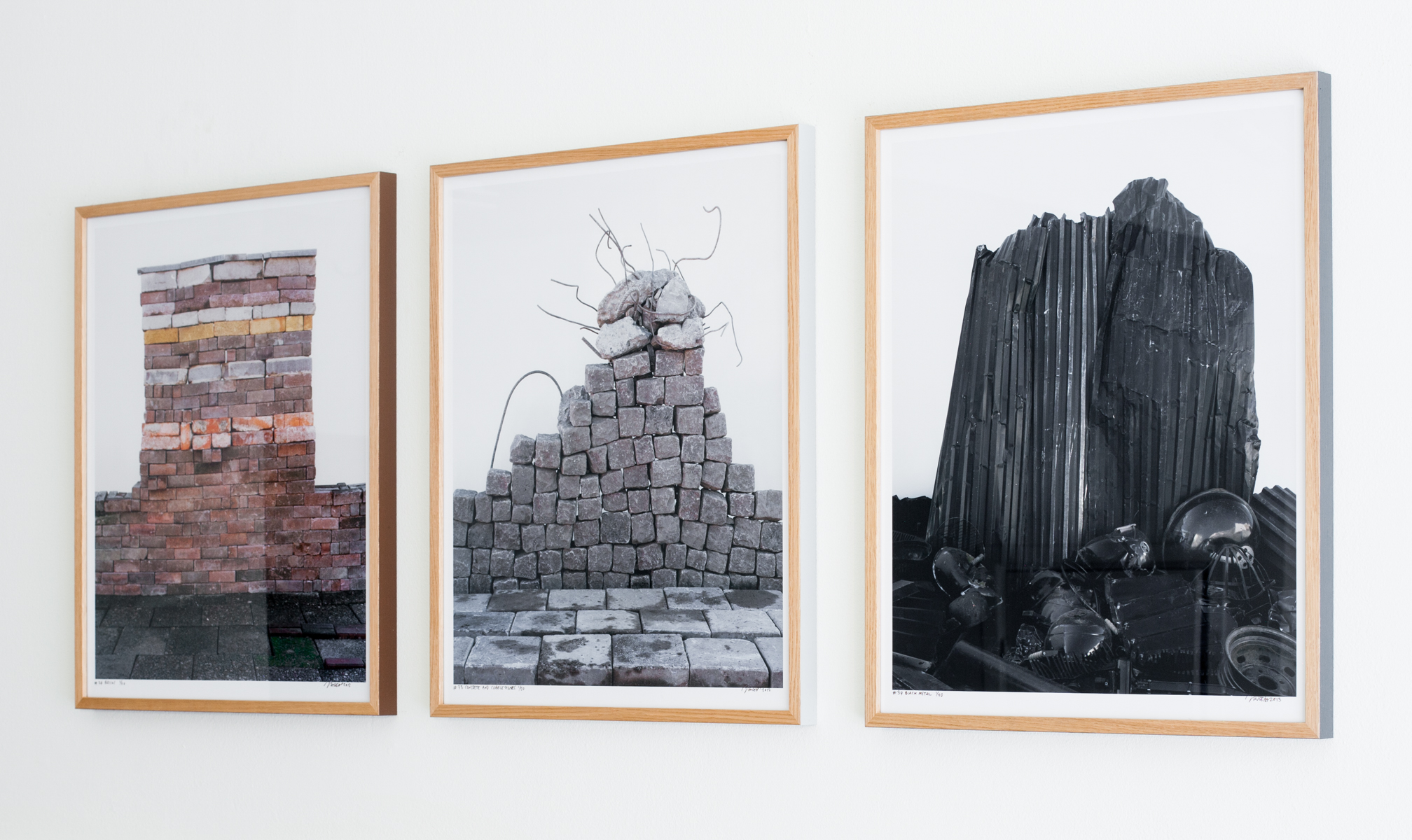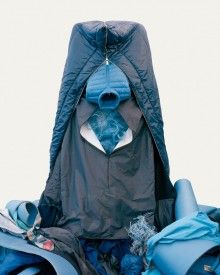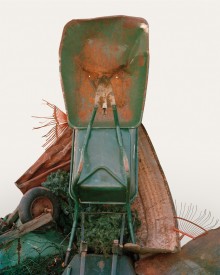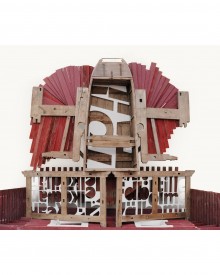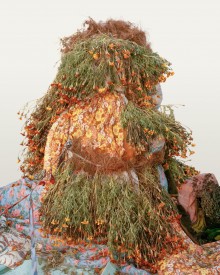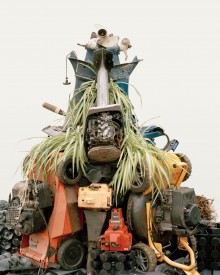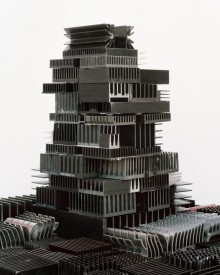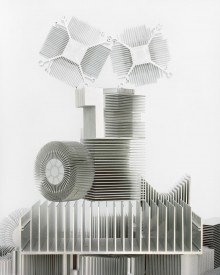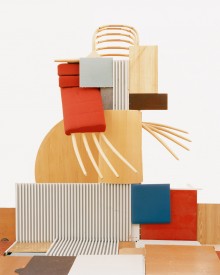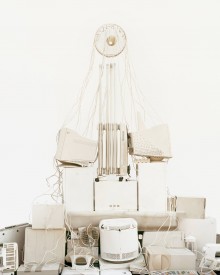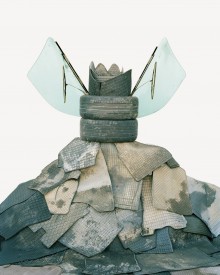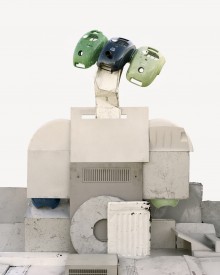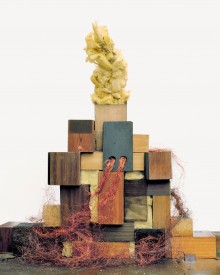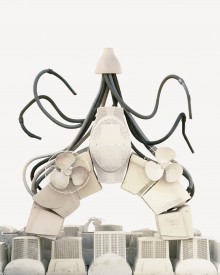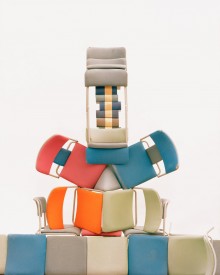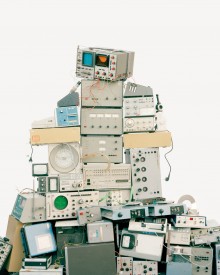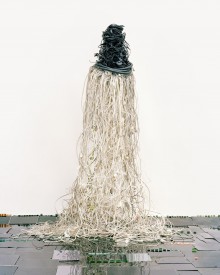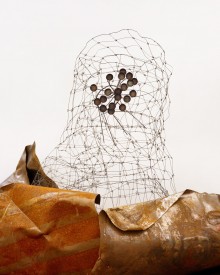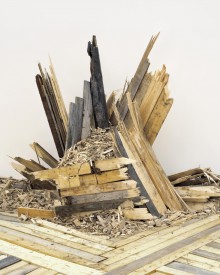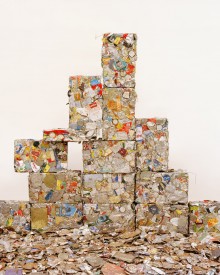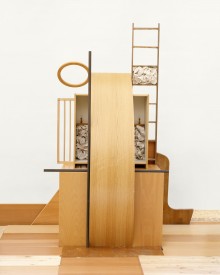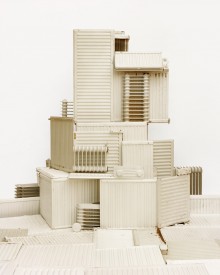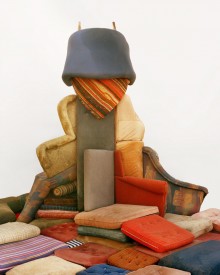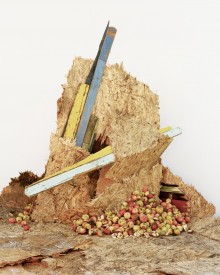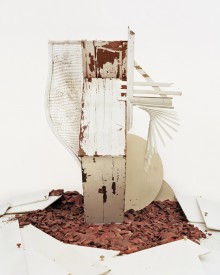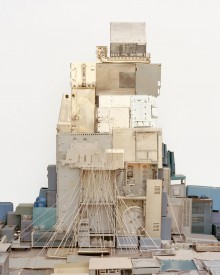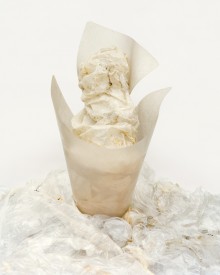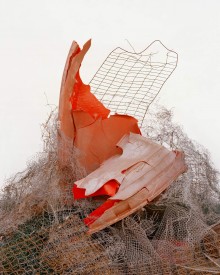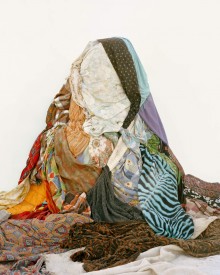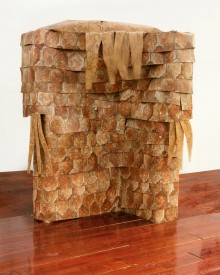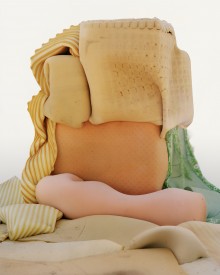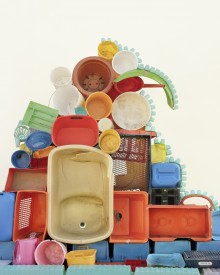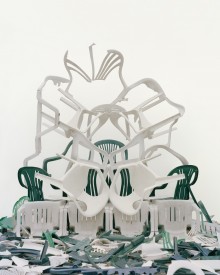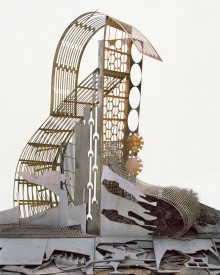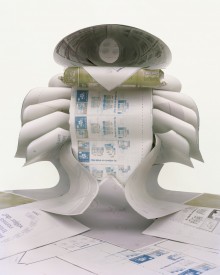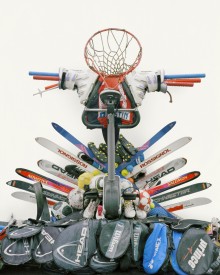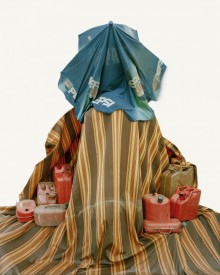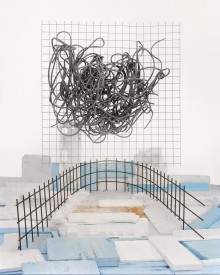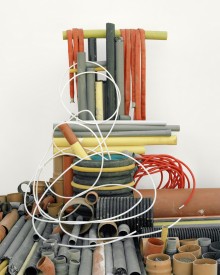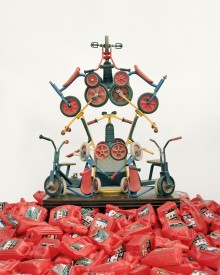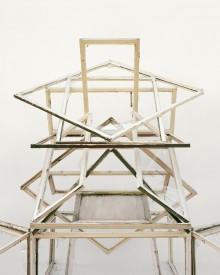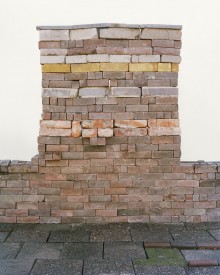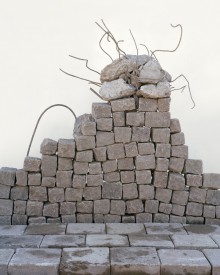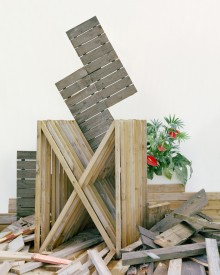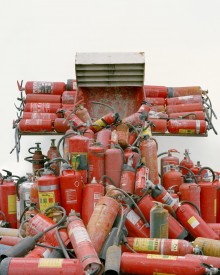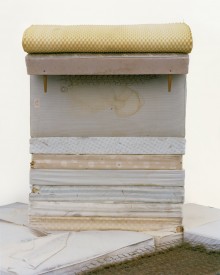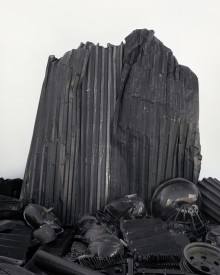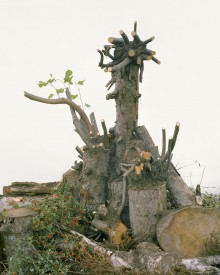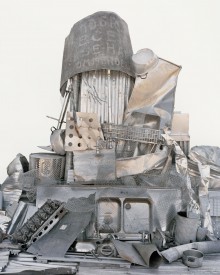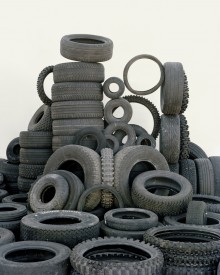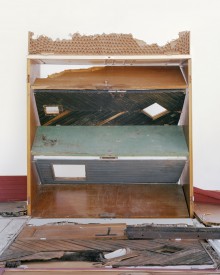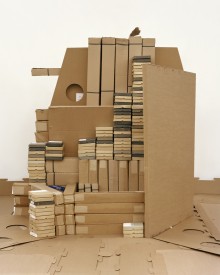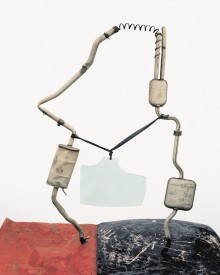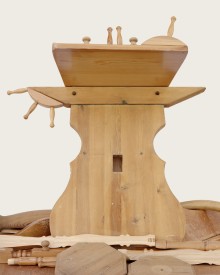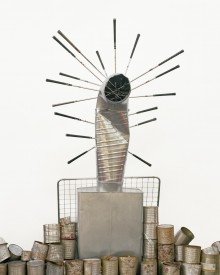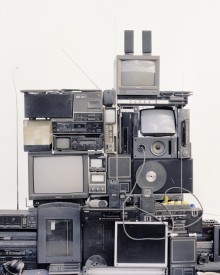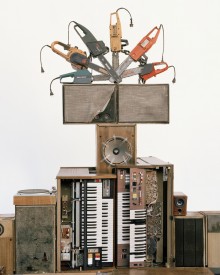The Waste Management Series
“To me, the dump is intriguing. It’s one of the most interesting places. The randomness is so vast. Colors and materials in different states of decay, coming together. I’d rather spend any day walking around on a dump than in a shopping mall. New stuff bores me, I prefer when it’s a bit used or broken. What happens in a product’s life span, the questions that comes up; Why did this particular thing get thrown away? What is the history of all these things?
An endless stream of products made from natures resources, used by mankind for a brief moment in time. Things that inevitably will be shredded and buried away, burned, made into new raw materials, or simply left in nature. I let them live a little bit longer by documenting the bits and pieces in a new context. By now starting a new cycle, this doomed material is now back were it came from, in the new form of photography. Embodying the possible future of the photographic object itself.”
- Vincent Skoglund
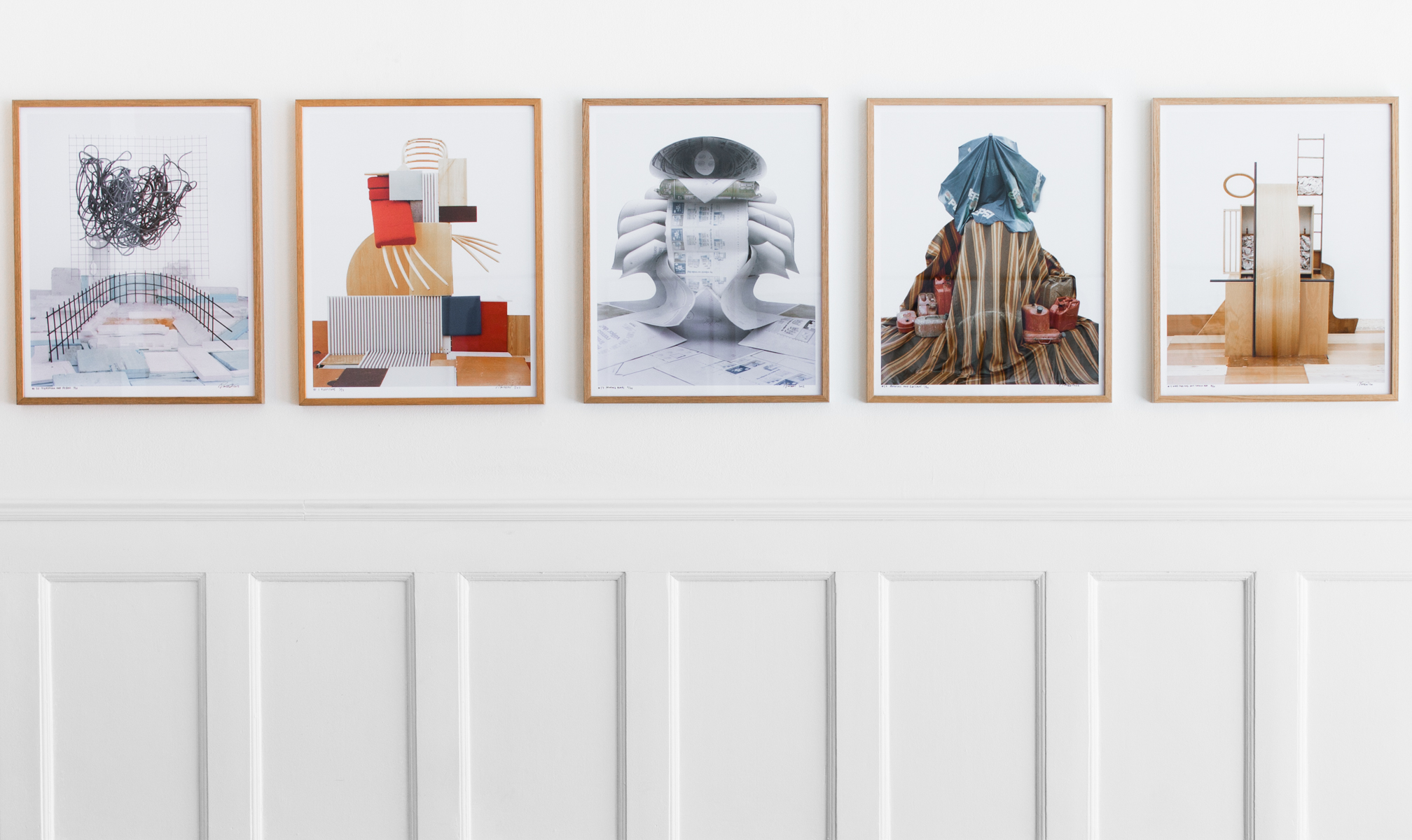
“This is where we should start feeling at home.
Part of our daily perception of reality is that this disappears from our world. When you go to the toilet, shit disappears. You flush it. Of course rationally you know it’s there in canalization and so on, but at a certain level of your most elementary experience, it disappears from your world. But the problem is that trash doesn’t disappear…
We all know in what danger we all are. Global warming, possibility of other ecological catastrophes. But why don’t we do anything about it? I know very well there may be global warming, everything will explode, be destroyed. But what do I do? I see nice trees, birds singing and so on. And even if I know rationally this is all in danger, I simply do not believe that this can be destroyed. That’s the horror of visiting sites of a catastrophe like Chernobyl. We are not wired to even imagine something like that. So I think that what we should do, to confront properly the threat of ecological catastrophe, is not all this New Age stuff, to break out of this technological manipulative mold, and to found our roots in nature. But, on the contrary, to cut off even more these roots in nature.
We need more alienation from our life-world, from our, as it were, spontaneous nature. We should become more artificial. We should develop, I think, a much more terrifying new abstract materialism, a kind of a mathematical universe where there is nothing. There are just formulas, technical forms and so on.
The difficult thing is to find poetry, spirituality, in this dimension. To recreate, if not beauty, then aesthetic dimension in things like this, in trash itself. That’s the true love of the world. Because what is love? Love is not idealization. Every true lover knows that if you really love a woman or a man, that you don’t idealize him or her.
Love means that you accept a person
with all its failures, stupidities, ugly points. And nonetheless, the person’s absolute for you. Everything life that makes life worth living.
But you see perfection in imperfection itself, and that’s how we should learn to love the world.”
- Slavoj Žižek
